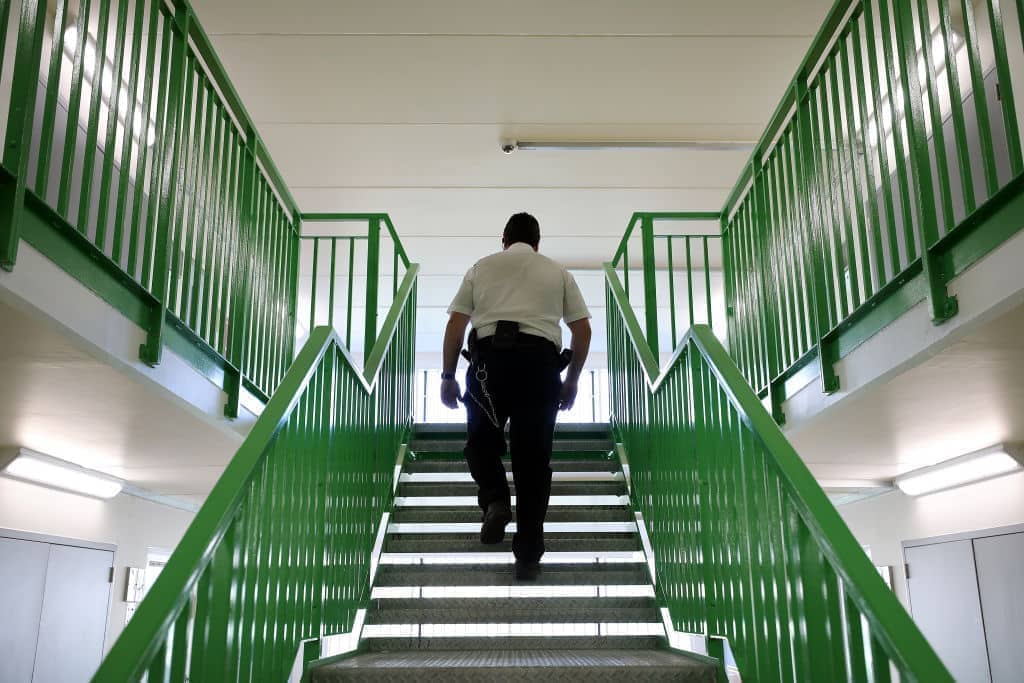The last time inspectors visited HMP The Mount in 2018, the place was awash with drugs. The prevalence of the psychoactive substance ‘bird killer’, and the violence associated with it, meant nearly half of all prisoners there reported feeling unsafe. This insidious drug, collectively known as ‘spice’, was smuggled past officers in the form of letters and cards invisibly impregnated with the stuff which prisoners then smoked or licked. Wings and landings filled with zombified inmates in a haze of toxic smoke that felled officers were not an uncommon sight. The addictive qualities of this junk resulted in a spiral of debt, predation and lawlessness that threw rehabilitation out the cell window.
So the news that this large Hertfordshire medium-security jail is banning all cards and photographs to inmates, except those generated remotely via commercial outlets such as Moonpig and Freeprints, represents a welcome effort to remove the awful scourge of synthetic drugs that disfigures prisons with brutality and despair. Up to a point.
It is not impossible to make jails drug-free, it’s just very expensive to do so
Family contact helps prisoners stay in touch with loved ones and connected to the outside world. Research by the Ministry of Justice shows the odds of reoffending are substantially reduced when prisoners who had family visits were compared with those who had none. But not all families can afford the cost and commitment of visits to prisoners often held a long way from home. So, cards and photographs assume an even greater importance, especially those handmade by children. We should loosen these emotional bonds only with extreme care and, if possible, temporarily.
Now, instead of the real thing, prisoners will be given photocopies of any handwritten cards sent to them. The prison service could also potentially be a huge source of revenue for Moonpig et al. Let’s hope, without much expectation, that someone within HQ has negotiated a bulk discount to make sure that this regrettable but necessary initiative is affordable for hard-pressed families and that the other methods of electronic communication such as video conferencing are boosted to compensate.
Nevertheless, the latest report by the independent monitors of HMP The Mount suggests that despite the still-pervasive Covid lockdown across it and many other jails, drugs including spice remain available. While the manner in which drugs find their way into prisons will include the methods HMP The Mount is trying to stamp out, fewer visitors in prisons means that drugs must be coming in to our jails through other ways; packages thrown over the perimeter and brought in by a small minority of corrupt staff must also feature in the problem. The rampant drugs economy in our prisons is so large and so lucrative that the threat will constantly evolve against countermeasures.
It is not impossible to make jails drug-free, just very expensive to do so. Removing some from the grasp of organised crime will probably require blood on the carpet in terms of pushback and disorder. But there are at last signs that, with the deployment of airport-style scanners and other technology to most closed prisons, we will begin to get a grip on supply lines. The relentless demand for drugs by those banged up is unlikely to go away though unless, at the same time, prisons return to being purposeful places that allow people to address their offending behaviour, get the treatment they need and give them skills for a successful life on release. For prisons, rehabilitation should be a primary focus.
The Chief Inspector of Prisons, Charlie Taylor, spoke recently of a post-covid ‘torpor’ with classrooms and workshops standing empty while prisoners that should be in them are locked up for as much as 23 hours a day. We now have hastily recruited prison officers whose experience of dealing with inmates is mainly through the hatch on their cell doors. We have prisons so deprived of staff who have left because of high violence, poor support and low pay that even if there’s the will to unfreeze this collective solitary confinement there’s no way to do it safely. This should matter to us all.
Jails awash with violence, indolence and despair will not stop future victims and cannot help prisoners realise their own potential. We’re paying for it and victims will meet the consequences in due course. The Mount is taking commendable steps against one aspect of this foul triumvirate but we need a proper response from the government to get prisons open again and safe for all.







Comments